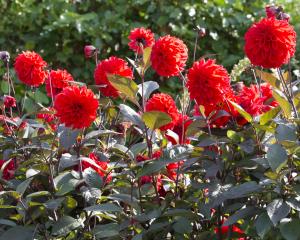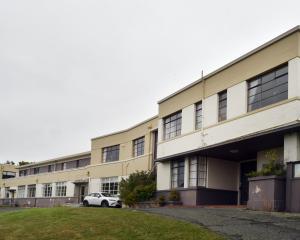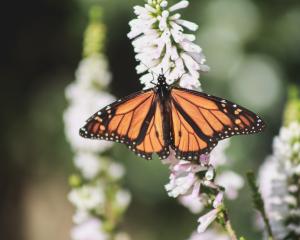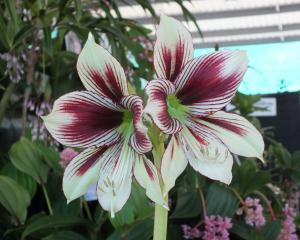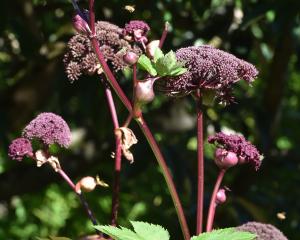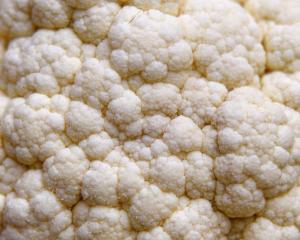The tale of a humble caterpillar neatly sums up the success of a permaculture approach to growing fruit that Canadian orchardist Stefan Sobkowiak says could work even better in New Zealand.
Sobkowiak is travelling the country on a ''Beyond Organic'' speaking tour that brings him to Otago next week, on the back of the documentary film The Permaculture Orchard about his Miracle Farms operation.
The five-acre (2ha) permaculture orchard demonstrates how encouraging ecosystem diversity can make the work of growing food easier while improving the environment, he says.
When Sobkowiak, a biologist and landscape architect, took over the property 20 years ago, it was a conventional commercial orchard.
He quickly moved to organic production, but found the monocultural approach still required a lot of work.
''We had a lot of caterpillars,'' he says of one of the time-intensive problems they faced as an organic orchard.
''We have a kind of caterpillar that is called the tent caterpillar, which forms these colonies. You can have 250 caterpillars in one little cluster.''
In the morning they leave the cluster and begin to eat.
''So at the peak of their effect in the orchard, we were losing one out of two trees with half-eaten foliage.''
In a year when they weren't so numerous, Sobkowiak would go through the orchard and remove the tent clusters, but in a bad year, the problem was beyond what could be done by hand.
Today, Sobkowiak finds it fun to find the caterpillar tents.
''Because they are not at all an issue and when we do see some it is more a curiosity of 'oh, look we have some again; what's going to eat them'?''
Within days birds will have eaten them or parasitic wasps will have laid eggs on them.
The key was the diversity introduced into the orchard when Sobkowiak took the tough decision to cut down the original apple trees and plant again with a much greater diversity of cultivar, each introduced with companion plants.
Alongside the diversity of flora, Miracle Farms welcomes all manner of insects and birdlife in order to create a balanced ecosystem.
''The whole thing is working, which is what was lacking before,'' he says.
The orchard and the life it supports is doing much of the work Sobkowiak and his team used to do.
The orchardist says the system can work on any scale, whether backyard or farm.
It provides a model of how the world could feed itself without needing to employ the high-input, chemically dependent methods of industrial agriculture.
The permaculture approach would work even better in New Zealand, where the climate naturally supports a greater range of crops than the tough environs of Quebec, where Miracle Farms is under snow for long periods, he says.
In Otago
• Stefan Sobkowiak is in Dunedin on Wednesday and will talk at the Otago Polytechnic Sargood Centre, Logan Park, from 7pm. Before the talk, there will be an expo and local food pot-luck tea, starting at 5.30pm.
• Next Friday he is in Palmerston, Saturday in Wanaka, Sunday in Hawea Flat and Monday in Arrowtown.
• For more details go to beyondorganicnztour.com.

